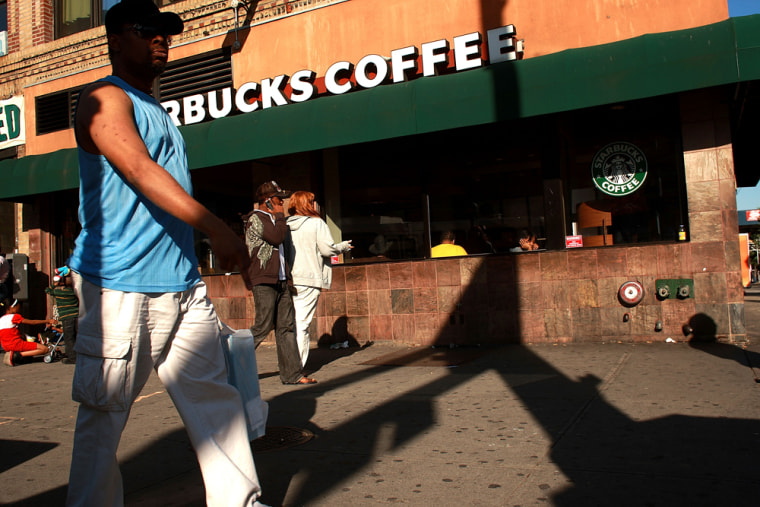The old joke that there’s a Starbucks on every corner may soon not ring quite as true.
Starbucks Corp. said Tuesday that it has drastically increased the number of stores it plans to close and could eliminate as many as 12,000 full- and part-time positions as a result.
The company said it now plans to close 600 company-operated stores in the United States, up from its previous plans to close 100 stores.
Starbucks also said it will open fewer than 200 stores in its coming fiscal year, which begins Sept. 29. That’s down from a previous target of opening 250 stores during that period.
In a filing with the Securities and Exchange Commission, the company said the job cuts represent about 7 percent of Starbucks' global workforce. Still, Starbucks said it expects many workers to find jobs in nearby stores.
The Seattle-based gourmet coffee retailer said in a conference call with analysts that the stores it decided to close were not profitable and that many had opened in the last few years. In addition, Chief Financial Officer Pete Bocian said the vast majority were located close to another Starbucks store.
The closures will account for 8 percent of all company-operated U.S. stores, and will leave the company with about 6,600 U.S. outlets, Bocian said. He said the stores closings will begin in late July and are expected to happen over a period of months.
There are currently more than 16,000 Starbucks stores worldwide.
Starbucks, known for sometimes going so far as to open stores across the street from one another, has recently acknowledged that it may have lost some of its luster during a long period of rapid store openings and expansion into everything from breakfast sandwiches to movie promotions.
Earlier this year, Starbucks Chairman Howard Schultz returned to the chief executive position, and the company vowed to make major changes. That has included plans to bring in new products, the introduction of a new, smoother coffee blend that is now served at most stores and a decision to stop offering breakfast sandwiches.
Starbucks also has conceded that it has not been immune to the weak U.S. economy combined with high food and gas prices, which has made $4 coffee drinks less palatable for many Americans.
Senior stock analyst John Owens with Morningstar said he thinks Starbucks probably didn't anticipate how much it would be impacted by the down economy, and he said the company may also have made poor real estate decisions in its go-go growth period.
Still, he thought Starbucks has been smart not to blame its problems simply on hard economic times.
"Investors don’t like companies to blame their results on the economy, on weather, on things that are outside of their control," Owens said. "So I think it’s important that they acknowledge that they had a hand in this, that mistakes were made."
Still, Starbucks also won't be immune to the country's current economic problems. Owens said he thinks Starbucks has made a lot of positive changes in the past few months, but its turnaround plan is not yet guaranteed to succeed.
"I think they have the right strategy," he said. "It’s a matter of executing the strategy and then, of course, the economy will play a role as well here."
Starbucks said that it expects pre-tax charges of between $328 million and $348 million related to the store closings. But because of tax benefits, the company said it expects to see total cash outflow of about $100 million as a result.
The charges will include about $8 million in severance charges.
